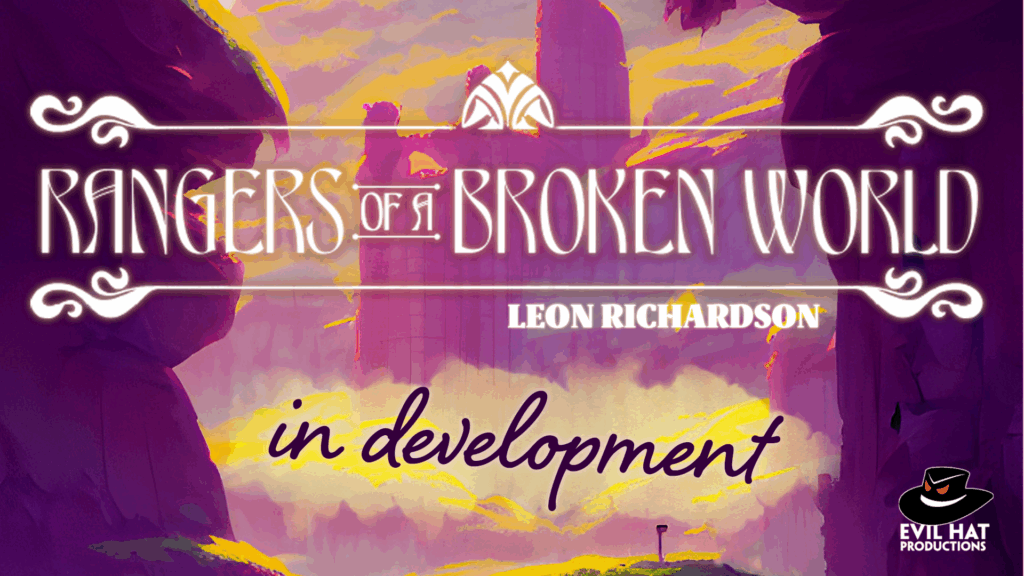Welcome to the second post in a series of Design Diaries for Rangers of a Broken World by the creator Leon Richardson:

…
Whenever designing a game, or a setting and ruleset for an existing game, I always want to get weird with magic. I was never satisfied with spell lists after getting my fill of them back when I played Dungeons and Dragons, and I always wanted to find alternatives, strange and wild and expressive.
Plus, admittedly, I am way too lazy to write a list of spells. Why not make the player write their own? That’s too much work for me, I truly don’t have the mental stamina for it.
I’m not sure where the first draft of the magic system in Rangers of a Broken World came from, but I know that the game you’ll see revolves around the second draft.
In the first draft, every player had a list of words, and spells were cast by combining words between players – I wanted a game that placed a high emphasis on teamwork. In my ideal game, the players would reach out to one another and rearrange their words to solve problems together in a game where no one person had all the answers on their own.
And then I had my first playtest.
Instead of collaborating on spells, however, my players fell into a pattern where one of them would think of a spell, and then inform the others “I need such and such word from you!”, took charge of the spell, and left little room for the other player to have creative input. Not what I wanted.
Rather than scrap the magic system entirely (which believe me, I was sorely tempted to do), I decided just to shift my weight a little bit.
When writing the early drafts of Rangers of a Broken World, I knew my game revolved around three pillars. First, a feeling of “Freedom”, a wide-open world with wide-open mechanics, where players felt unshackled. Second was “Teamwork”, humanity coming together on a large scale and a small scale to create an ideal world together. Third was “Nature”, the beauty and power of the natural world.
So, instead of rejecting my magic system entirely, I moved it from the “Teamwork” pillar into the “Nature” pillar, reimagining it to serve one of the game’s other three goals. In the second draft, the players have a list of words, and the GM, or Conductor, supplies another list. Players choose one word from each list, and combine them into a spell, then describe what the spell does.
Players can still cast combination spells, but this solved the problem of players telling one another what to do (at least, at my playtest table). The game still felt like the game I imagined, and the new magic system helped the Conductor to express the scene and environment to the players.
Now, when you play Rangers of a Broken World, you still come together to solve your problems, but magic is a matter between you and the majestic natural world. Whatever kind of environment you’re reading from, I hope Rangers of a Broken World helps you form a bond with it!
